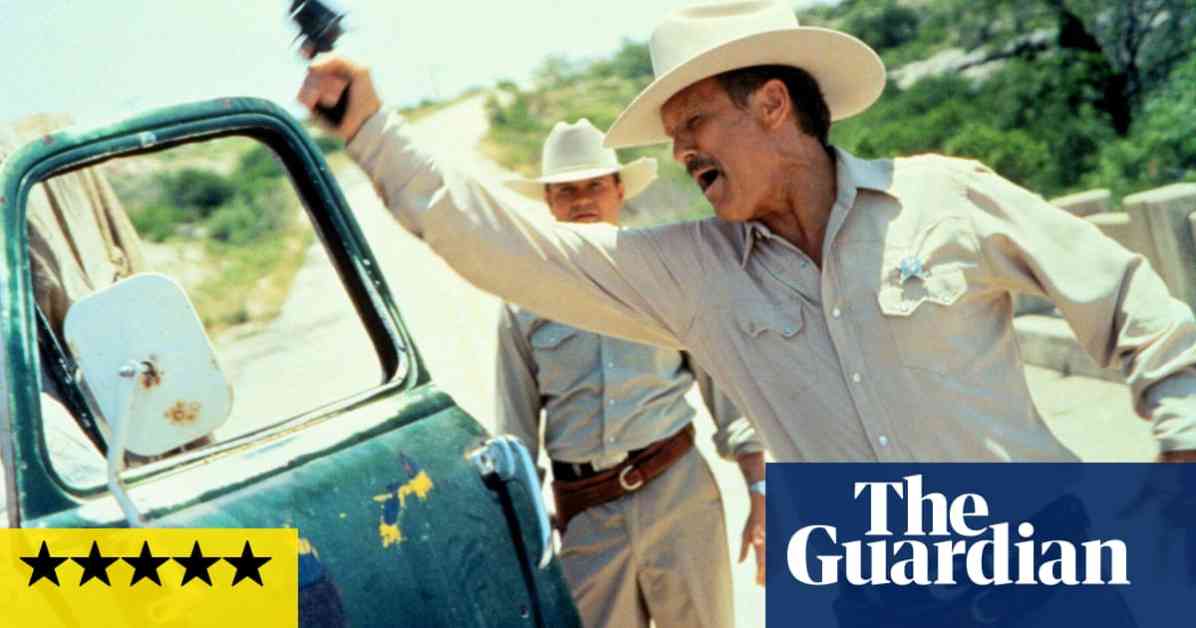**Exploring the Depth of John Sayles’s Lone Star**
John Sayles’s Lone Star, a powerful crime drama from 90s Hollywood, has been reintroduced to audiences, reminding us of the unique storytelling that characterized indie filmmaking during that era. In a landscape dominated by the likes of Tarantino and the Coen brothers, Sayles’s film stands out for its thoughtful and complex narrative that delves into the culture wars of Texas and Mexico, the legacy of the old west, and the shifting dynamics of the new west. Lone Star is a richly woven tapestry of characters and themes that challenges the traditional notions of heroism and villainy, offering a nuanced exploration of identity, memory, and the tangled web of history.
**Unpacking the Layers of Lone Star**
Set in the fictional town of Frontera, Texas, Lone Star opens with the discovery of a skeleton bearing a “lone star” badge, sparking a series of revelations that unravel the town’s dark past. Sheriff Sam Deeds, portrayed with depth and gravitas by Chris Cooper, finds himself caught in the crosshairs of a long-buried secret involving his late father, Buddy, and the enigmatic lawman Charlie Wade, played hauntingly by Kris Kristofferson. As Sam delves deeper into the mystery surrounding Wade’s demise, he is forced to confront his own demons and reckon with the ghosts of his past.
The town of Frontera serves as a microcosm of the larger societal issues at play, from racial tensions to immigration struggles to the legacy of prejudice and discrimination. Sayles deftly weaves together the stories of various characters, each grappling with their own personal traumas and conflicts, painting a vivid portrait of a community on the brink of change. From Sam’s tumultuous relationship with his ex-wife to Pilar’s struggle to reconcile her heritage with her present reality, Lone Star delves into the complexities of identity and belonging in a world fraught with division and distrust.
**The Heart of Lone Star: Themes of Memory and Redemption**
At its core, Lone Star is a meditation on memory and redemption, exploring how the sins of the past continue to reverberate in the present. Sam’s journey of self-discovery parallels the town’s collective reckoning with its history, forcing its inhabitants to confront uncomfortable truths and reconcile with their shared legacy. Through a series of poignant flashbacks and introspective moments, Sayles invites the audience to reflect on the nature of forgiveness and the power of reconciliation in the face of adversity.
The film’s climactic revelation, culminating in a subversive and thought-provoking ending, challenges conventional notions of justice and closure, leaving the audience to grapple with the moral ambiguity of the characters’ actions. As the layers of deception are peeled back and the truth comes to light, Lone Star invites us to question our preconceived notions of heroism and villainy, urging us to look beyond the surface and confront the complexities of human nature.
**The Legacy of Lone Star: A Timeless Tale of Resilience and Hope**
As we revisit Lone Star in the context of today’s ever-changing world, its themes of resilience and hope resonate more strongly than ever. In an era marked by division and discord, Sayles’s film serves as a poignant reminder of the power of storytelling to bridge the gaps that separate us and unite us in our shared humanity. Through its nuanced characters and layered narrative, Lone Star offers a glimmer of hope amidst the darkness, reminding us that redemption is always within reach, even in the face of seemingly insurmountable odds.
In conclusion, John Sayles’s Lone Star stands as a timeless masterpiece of 90s Hollywood cinema, a testament to the enduring power of independent filmmaking and the importance of telling stories that challenge our perceptions and ignite our imaginations. As we journey through the dusty streets of Frontera alongside Sheriff Sam Deeds and the eclectic cast of characters that populate this world, we are reminded of the transformative power of cinema to illuminate the hidden corners of our souls and inspire us to seek out the truth that lies at the heart of our shared humanity.




















